- GU Home
- Faculties
- Faculty 03 Social Siences
- International Relations
- Green Exchange
Green Exchange
General Information
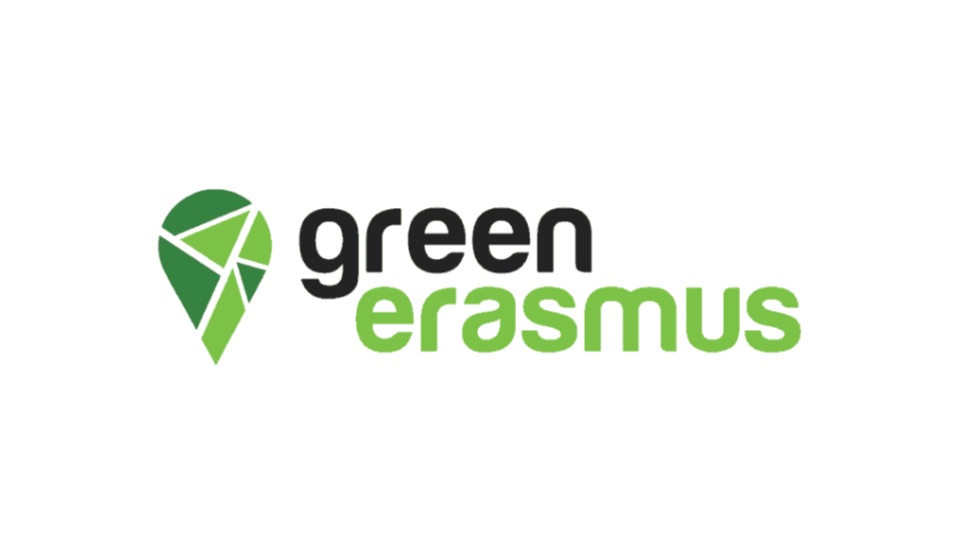
Goals of Green Erasmus
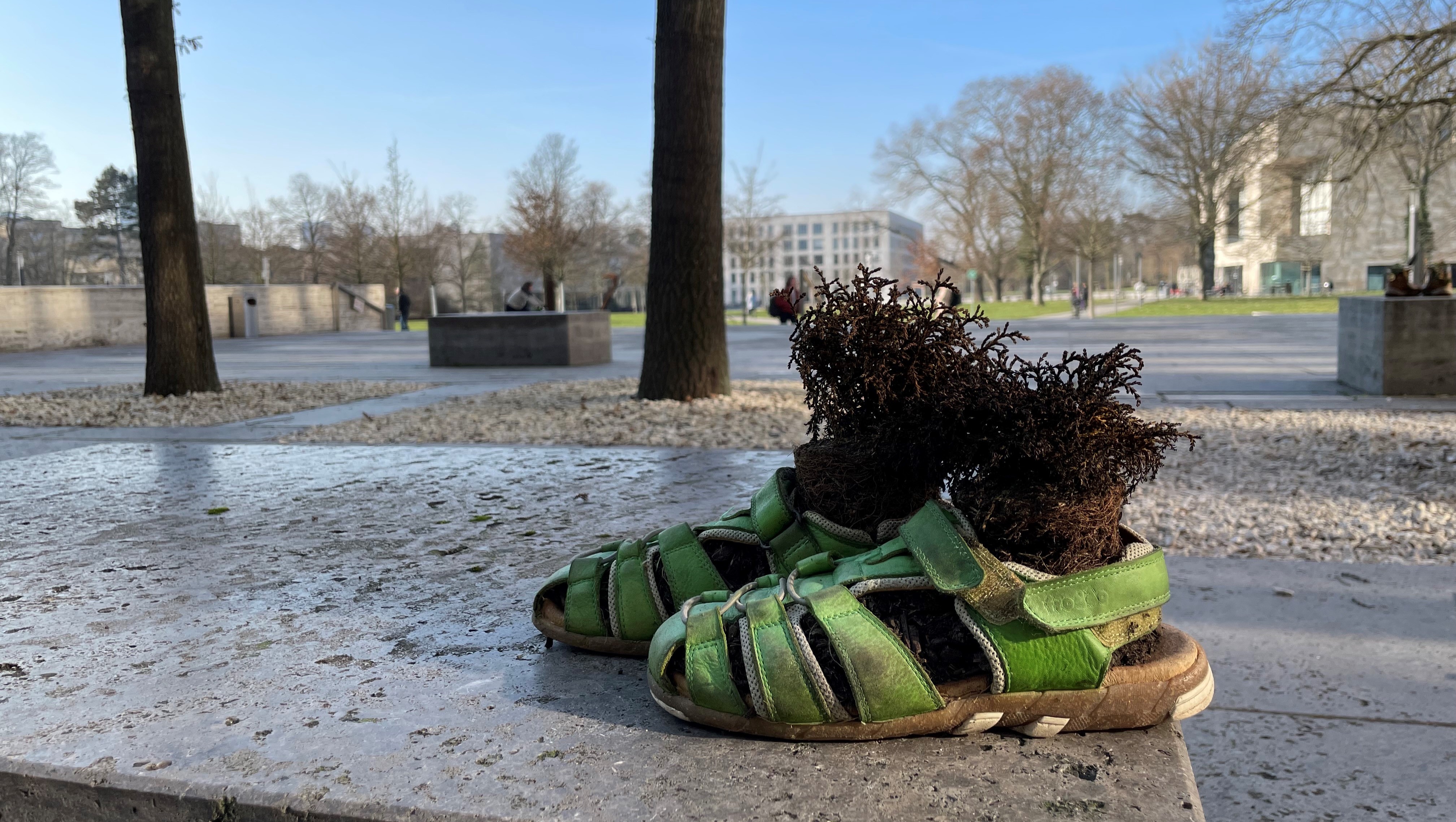
- To decrease the negative impact of the Erasmus+-Programme on environmental sustainability.
- To raise awareness across the European higher education sector about the importance of sustainable internationalisation.
- To empower student organisations to be the agents of change, pushing for improvements on the topic of environmental sustainability.
You can read more on the Green Erasmus portal. Moreover, you find the petition for increasing the Green Exchange top-up there.
Tips for more sustainability during your Erasmus+
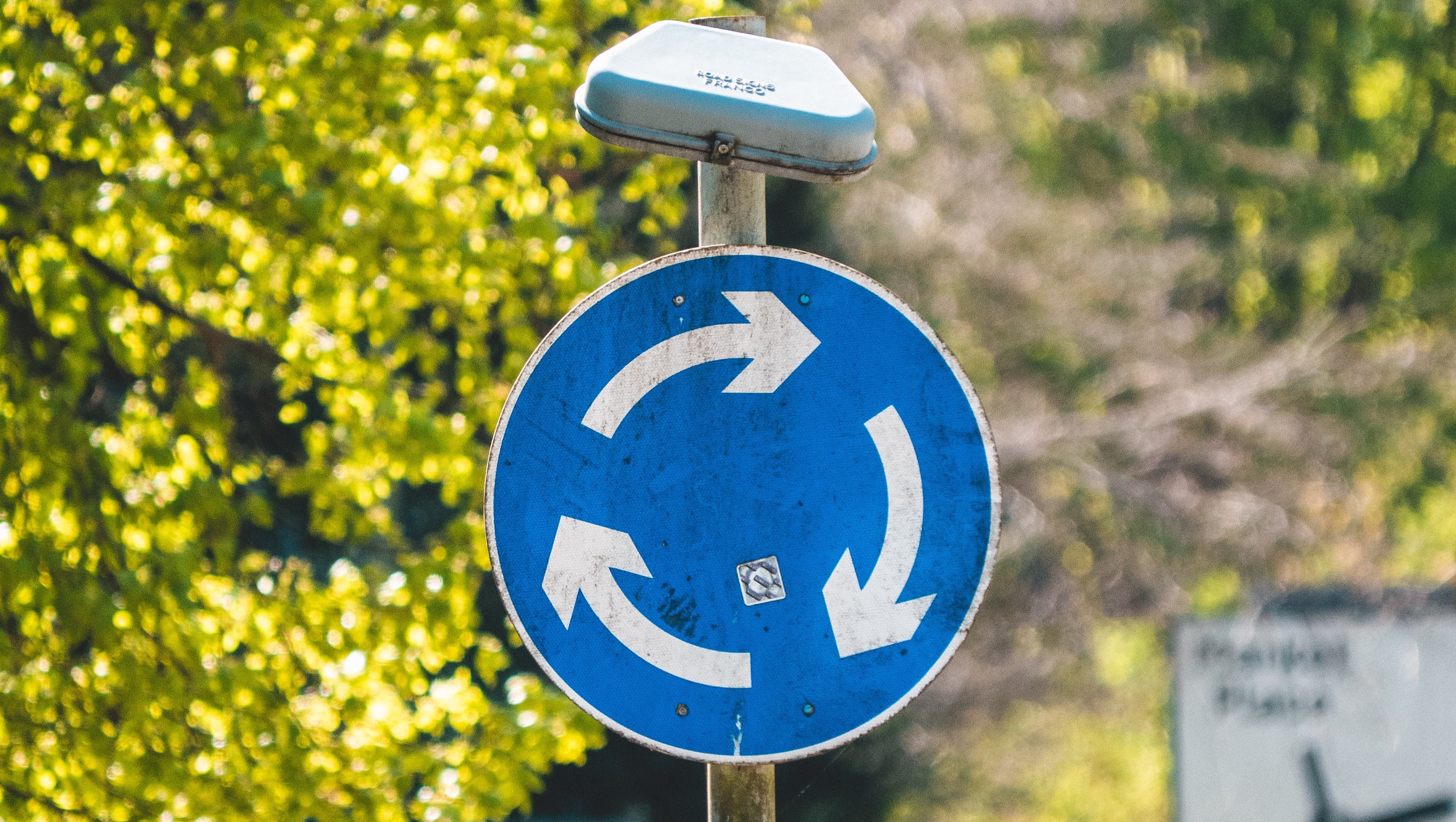
With these tips and recommendations for action, you can make a small individual contribution to the EU's climate goals and sustainable European cooperation during your Erasmus+ experience.
Before your Erasmus+
Already in the application stage, you can start thinking about: Where do I want to do my Erasmus+? Can I combine my semester abroad with other academic or personal destinations?
Mobility
Most students travel abroad by plane, even if the destination is accessible by more sustainable modes of transportation. Physical mobility is not sustainable per se, but the CO2 emissions of trips could be reduced by two-thirds if you travel by train.
Thus, we encourage you to avoid flying by airplane, use more sustainable transportation instead, and apply for funding for additional travel days.
Maybe you have heard of the concept of "slow travel" before. It also offers another perspective on travelling and asks: How fast am I travelling? What might I gain by travelling slower?
Slow Travel is the attitude that the quality of the experience is more important than the quantity of experiences. This type of travelling offers a more authentic experience where you feel like you have really gotten to know the places, people and cultures you encounter on your trip.
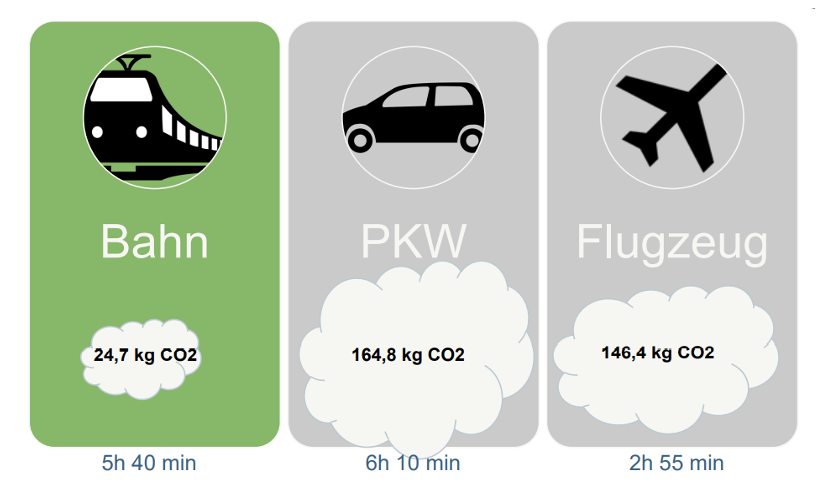
Example of Frankfurt Lyon (Calculated with the CO2 calculator of Quarks)
During your Erasmus+
You can also get involved on an individual and/or institutional level in your semester abroad. Below you find a few examples, ideas, and suggestions:
Mobility
If you can, use public transportation during your Erasmus+. Often, special student tickets are available which can also save you money, such as the Klimaticket in Vienna or the student discounts in Vilnius, Lithuania.
Alternatively, you could look for a bicycle during your Erasmus+. Whether it is buying a used bike cheaply on online platforms or local flea markets, or looking for rental opportunities, a bike is a great way to explore your host city in a different way.
Consumption:
Consumption is one of the individually implementable parameters for more sustainability. The concept of circular economy is central to the idea of sustainable consumption. It is the opposite of the "throwaway economy." The aim of a circular economy is to produce and consume in the most resource-conserving and long-lasting way possible. In the best case, it creates a cycle of products and materials. Most countries in Europe offer (some of the following) opportunities for a more sustainable lifestyle and consumption in everyday life:
- Second-hand stores or platforms can be useful if, for example, the espresso maker does not fit into the suitcase for the semester abroad or the weather is different than planned.
- Labels and seals provide orientation for sustainable shopping and living. The list of sustainable labels of the federal government of Germany can give you a first overview and on the German website fairunterwegs.org you can find a useful overview for sustainable tourism in the European context.
- Living according to the principle of zero waste (i.e. producing no waste) is an even greater challenge when travelling. Nevertheless, even small measures can contribute. Carry a refillable water bottle, your own coffee mug or a tote bag with you and you already save some to-go waste. The internet or reports of former exchange students can be helpful to find out in advance, whether public drinking water is available and if bottles can be easily refilled anywhere.
- Recycling as a central component of a circular economy is not yet standard in all European cities and of course depends on local conditions of waste separation.
- Consuming seasonal and regional food is not only more sustainable than tomatoes from Morocco or avocados from Peru, but also offers a special and individual cultural-gastronomic experience.
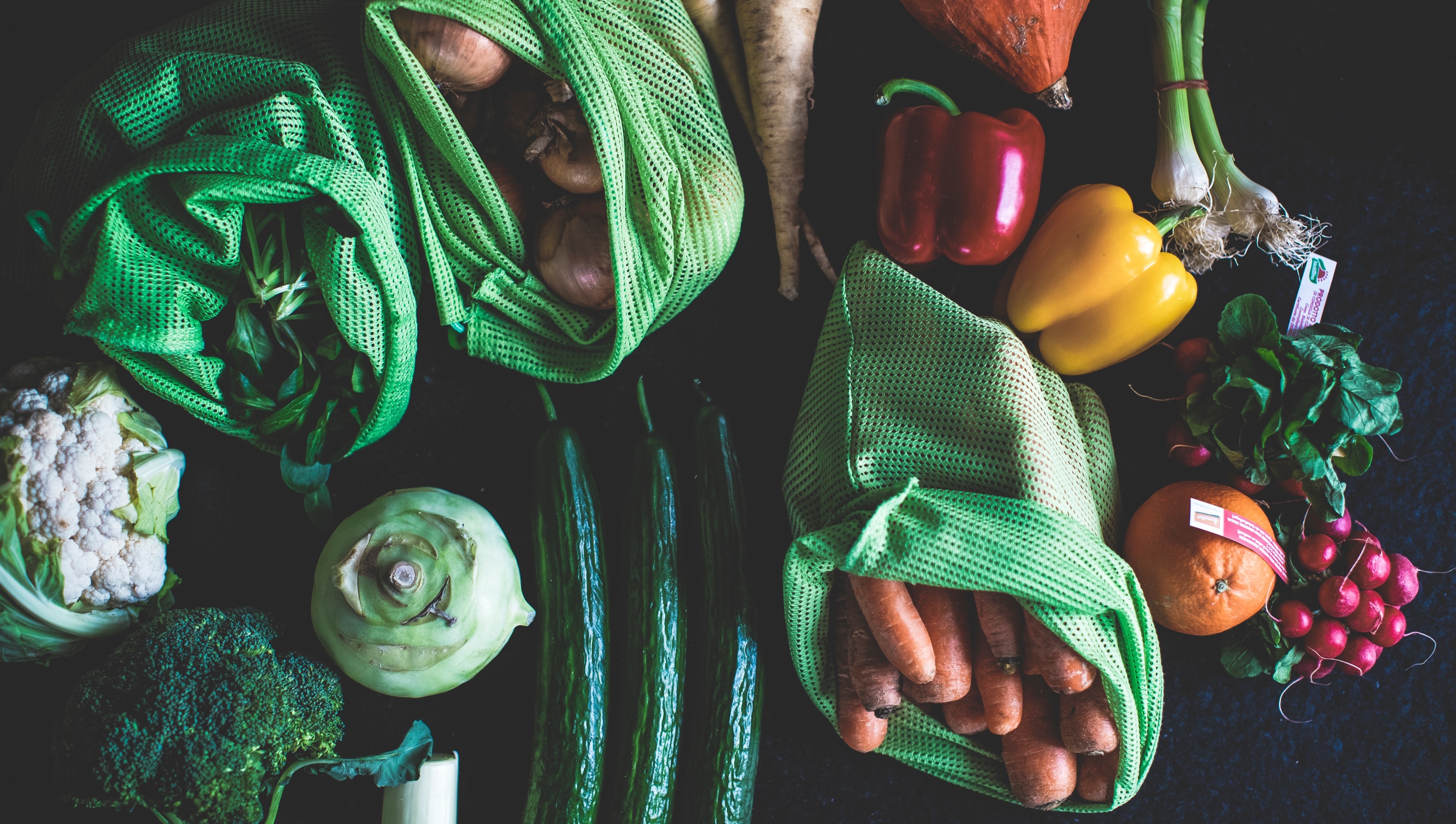
Housing:
While the culture of communal living (“WG") is comparably big in Germany, similar living concepts are increasingly available in other countries as well. From student dorms, rooms with a local family or privately organized living with other students: communal living is easy on the wallet and the environment. Moreover, you get to know other people right away. The testimonials of previous Erasmus+ students contain valuable tips which websites you can use for searching shared housing in the exchange country
Commitment:
If you want, you can also use your Erasmus+ semester to network, exchange, and support sustainable initiatives and participate in events. This way you automatically get to meet people with similar interests. Whether at beach clean-ups or participation in university groups, committed locals are certainly happy about support and your interest. Additionally, it gives you the opportunity to learn the language, learn new perspectives and contribute with your own ideas.
Academic life:
If there is a thematic offer at the partner university, you can take courses related to sustainability or climate change to further educate yourself and/or learn about new perspectives.
After your Erasmus+
We encourage you to include your personal experiences and learnings in the area of sustainability in your final report. This is helpful for the next generation of Erasmus+ students to find their way around local sustainable options, for example having a tip for second hand stores. In our FAQs you find some more inspiration what you could include. Moreover, it helps us in pursuing the topic, as it shows your interest in sustainability and supports our work to integrate sustainability more strongly into European universities.
Pictures: Unsplash
Sustainability at Goethe University
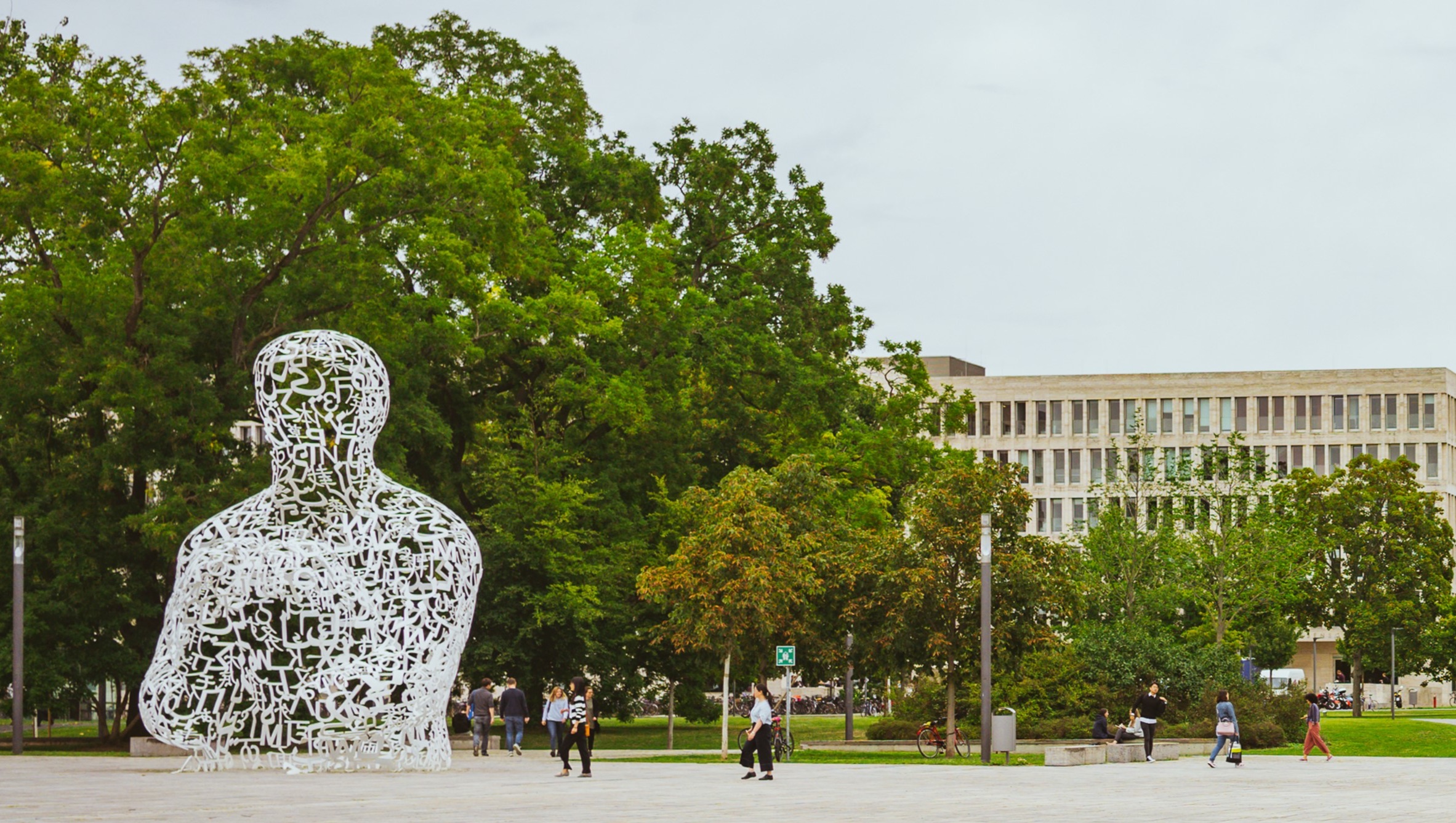
After your Erasmus+, you can continue to get involved at Goethe University to further promote sustainability at our institution. Sustainability is already a core topic of some activities of student organizations.
Moreover, you can contact the newly found Goethe’s Green Office at Goethe University with your ideas to make the university a greener and more sustainable place.
In the QIS/LSF system, you are also able find a list of all courses and seminars offered with a reference to topics of sustainability under "Sustainability Studies".
Further information and inspiration
Those who are interested in the topic can find various suggestions on Green Exchange and a sustainable stay abroad in this section.
- As part of the Strategic Partnership Program, the Green Erasmus Consortium has published the report “Research on the habits of Erasmus students: consumer, daily life, and travel habits of Erasmus students from the perspective of their environmental attitudes and beliefs“ in 2022.
- Get inspired by others' thoughts and experiences on Green Exchange on the sustainability blog of studieren weltweit. Maybe you can find concrete suggestions for your exchange University and city.
- The DAAD brochure on climate-friendly travel lists ten tips for a smaller ecological footprint during the mobility abroad.
- Our partner university in Norwich, the University of East Anglia (UEA), has set up a working group on sustainability and produced a guide for visiting students on how to study sustainably at UEA. Two visiting students have also shared their tips for a sustainable exchange in Norwich on Instagram.
If you have any questions, comments, suggestions, or would like to cooperate in terms of sustainable exchange, please do not hesitate to contact us at international@soz.uni-frankfurt.de.
Contact
International Relations Management and Erasmus+-Coordination
Dr. Anke Reinhold
Tel.: +49 (0)69 798-36571
E-Mail: international@soz.uni-frankfurt.de
PEG Room 2G. 134
Open consultation hours: Tuesdays and Thursdays 11 am – 1 pm and online by appointment via email to international@soz.uni-frankfurt.de.
During the semester break, office hours are held on Tuesdays from 11 am – 1 pm.
Goethe University
Faculty of Social Sciences
Campus Westend, PEG building
Theodor-W.-Adorno-Platz 6
60323 Frankfurt am Main
- Studying at Goethe University
- International applicants
- Faculties
- Overview of study programmes
- Programme for refugees
- GRADE
- Goethe Business School (continuing education)
- Research at Goethe University
- Scientific news
- Goethe Welcome Center (for international researchers)
- Collaborative research projects
- Individual research
- Visiting fellowships
- Endowed chairs
- About the University
- News-in-brief
- University administration
- Campus locations
- Campus life
- University archives (German)
- Rhine-Main-Universities





